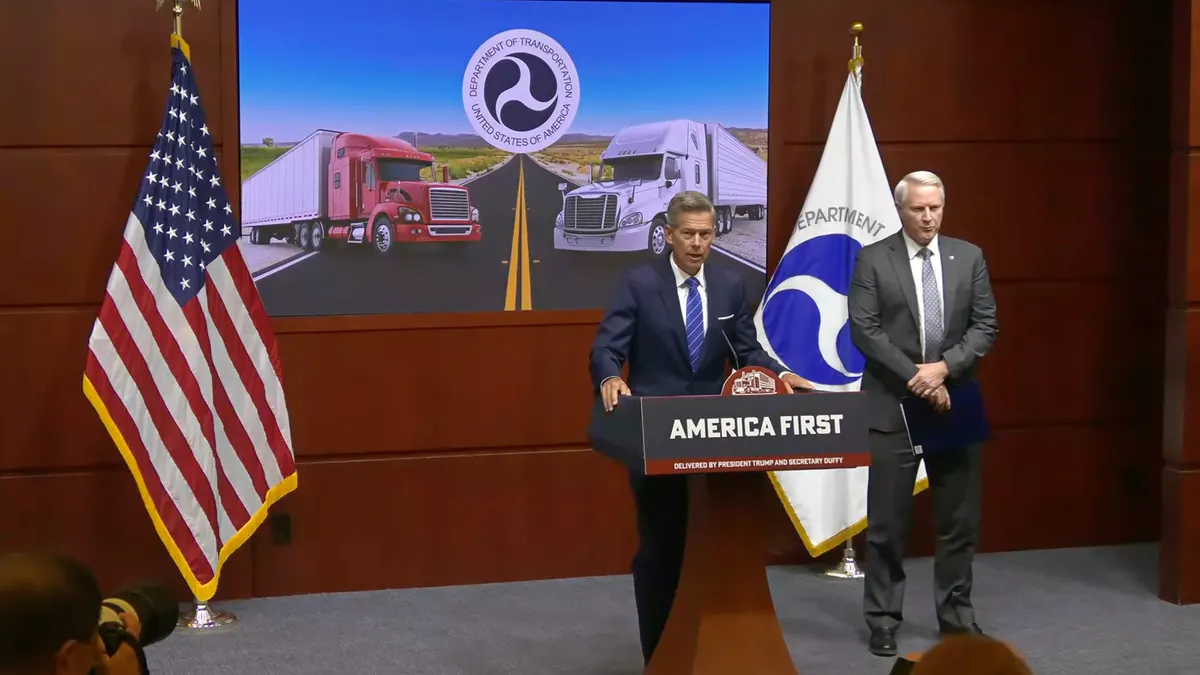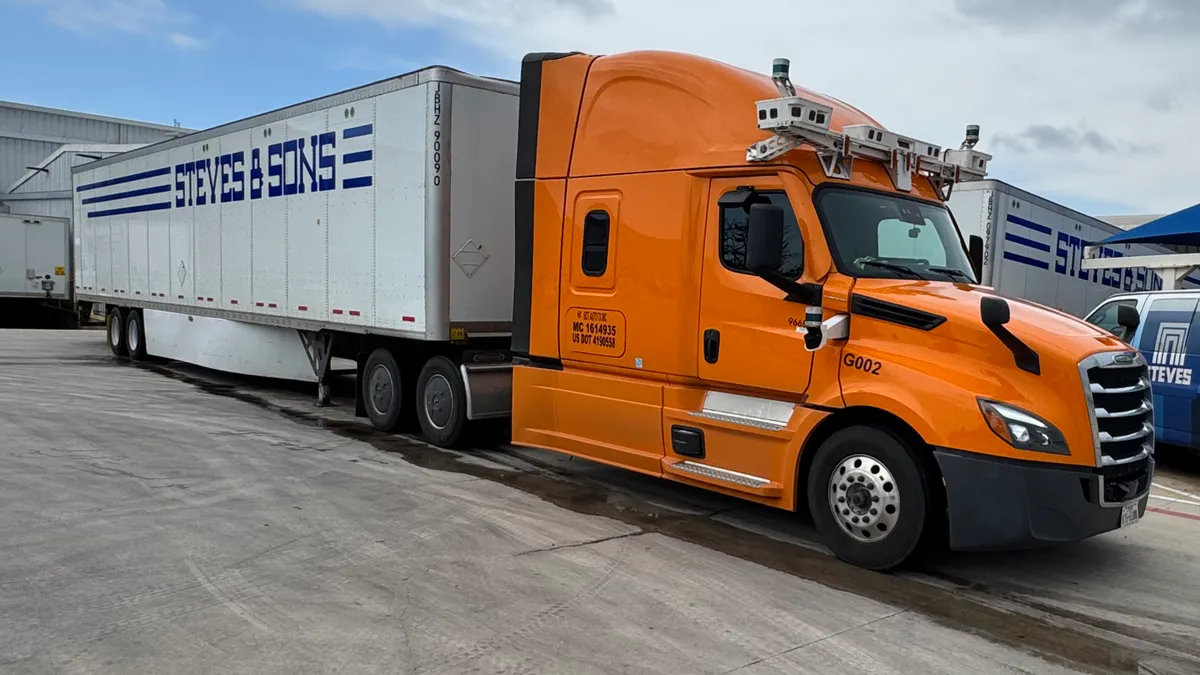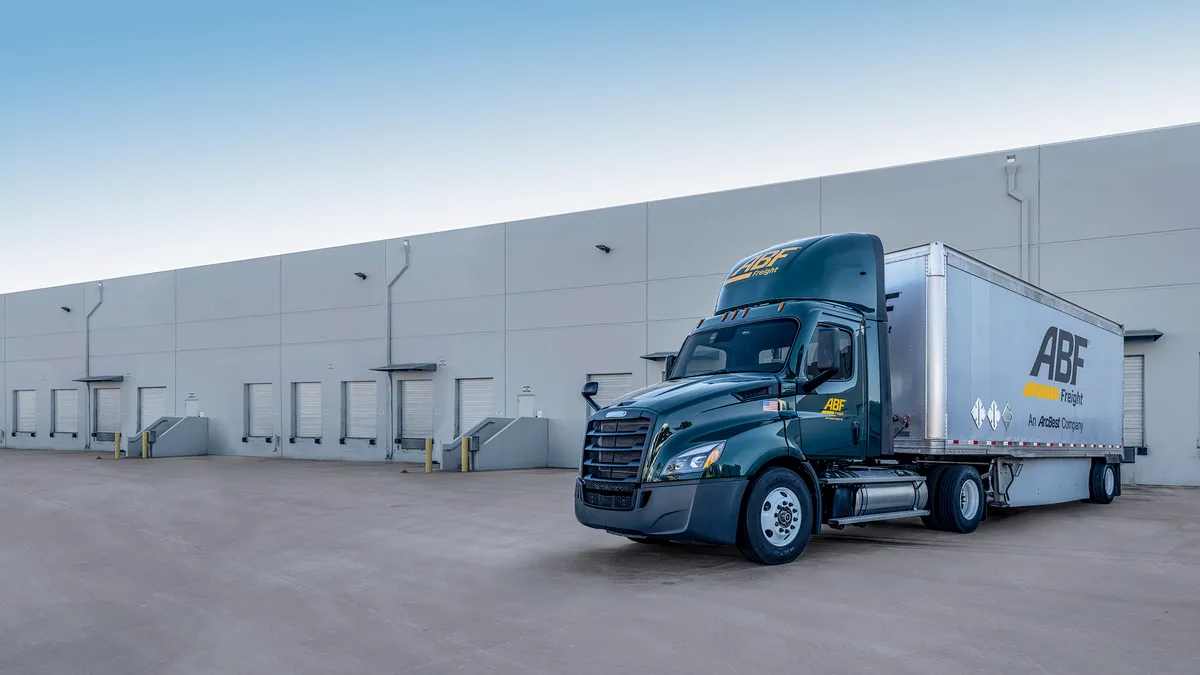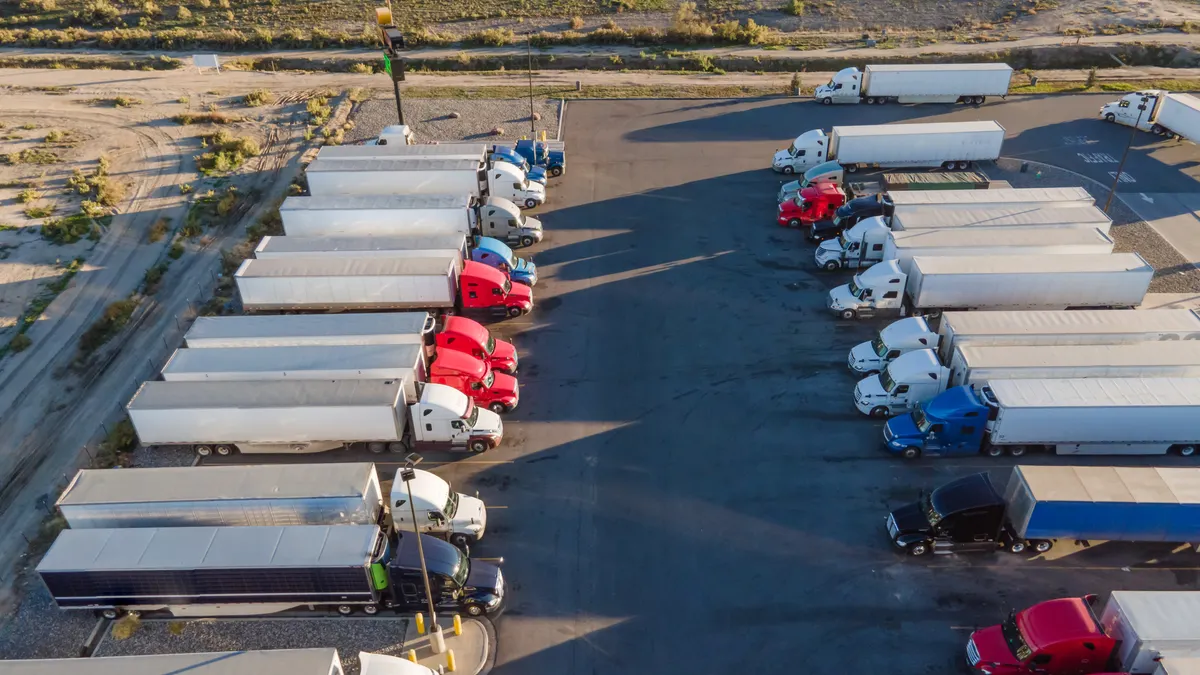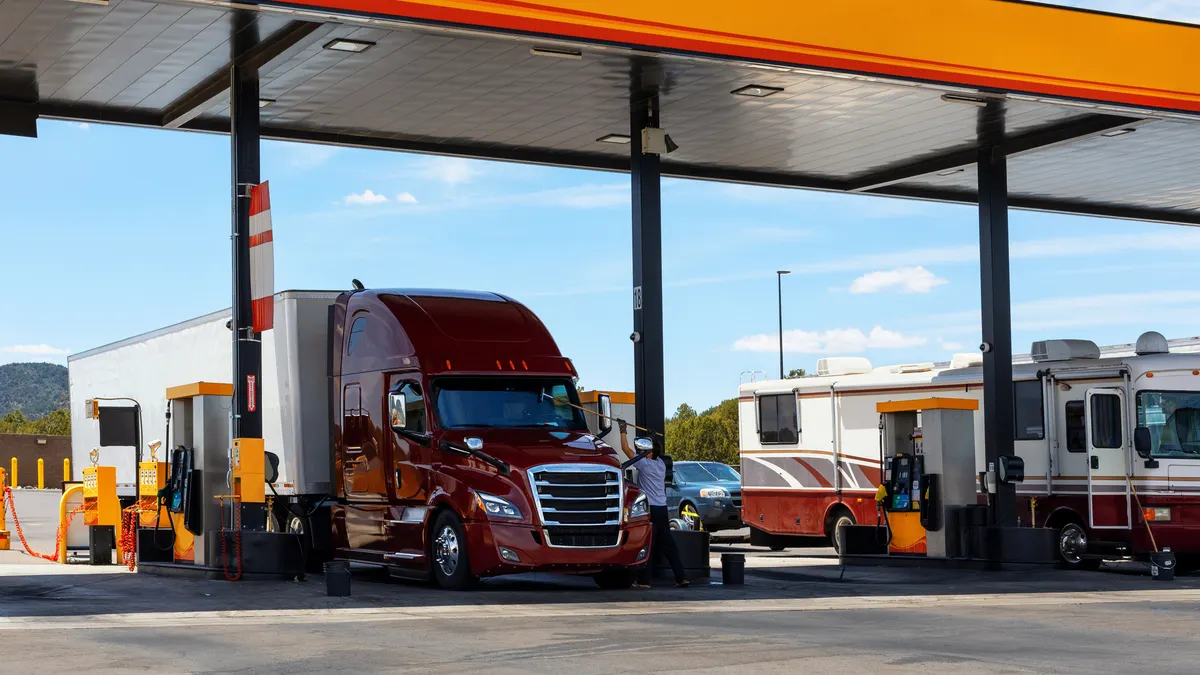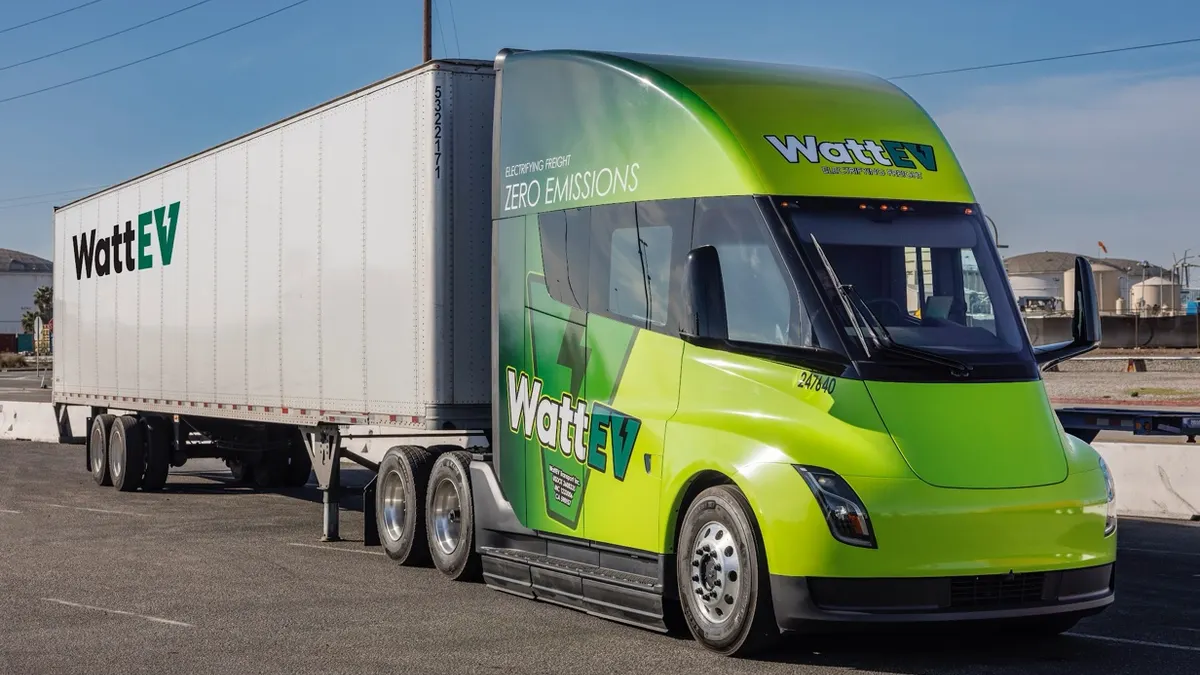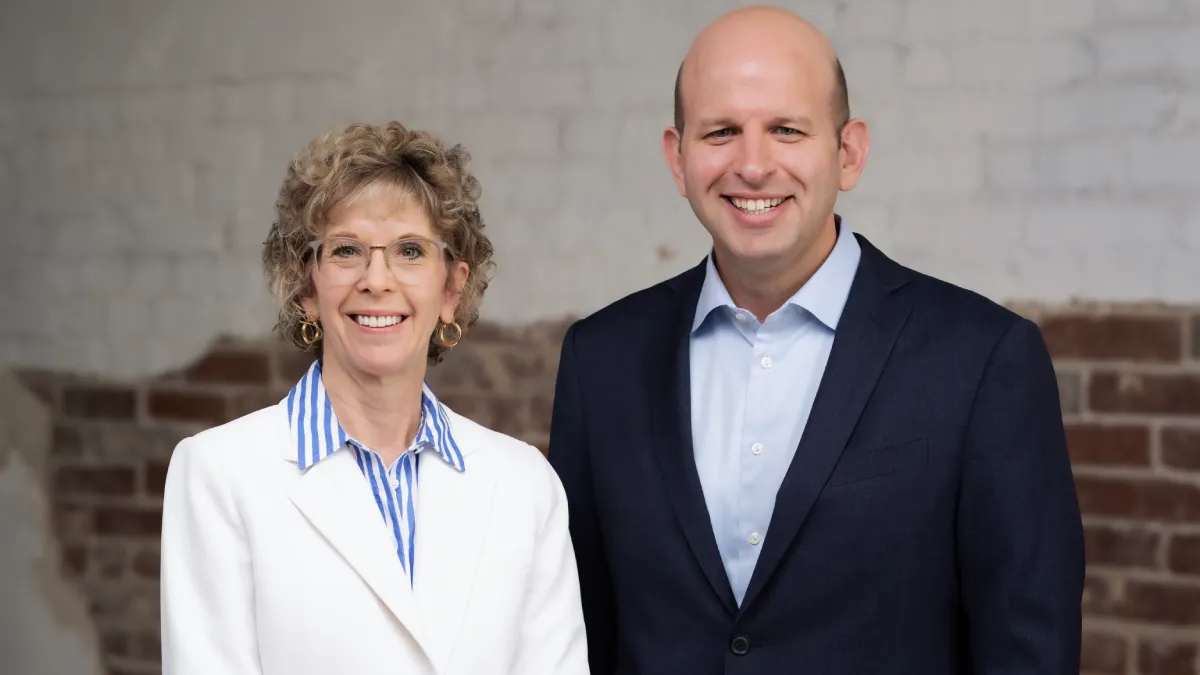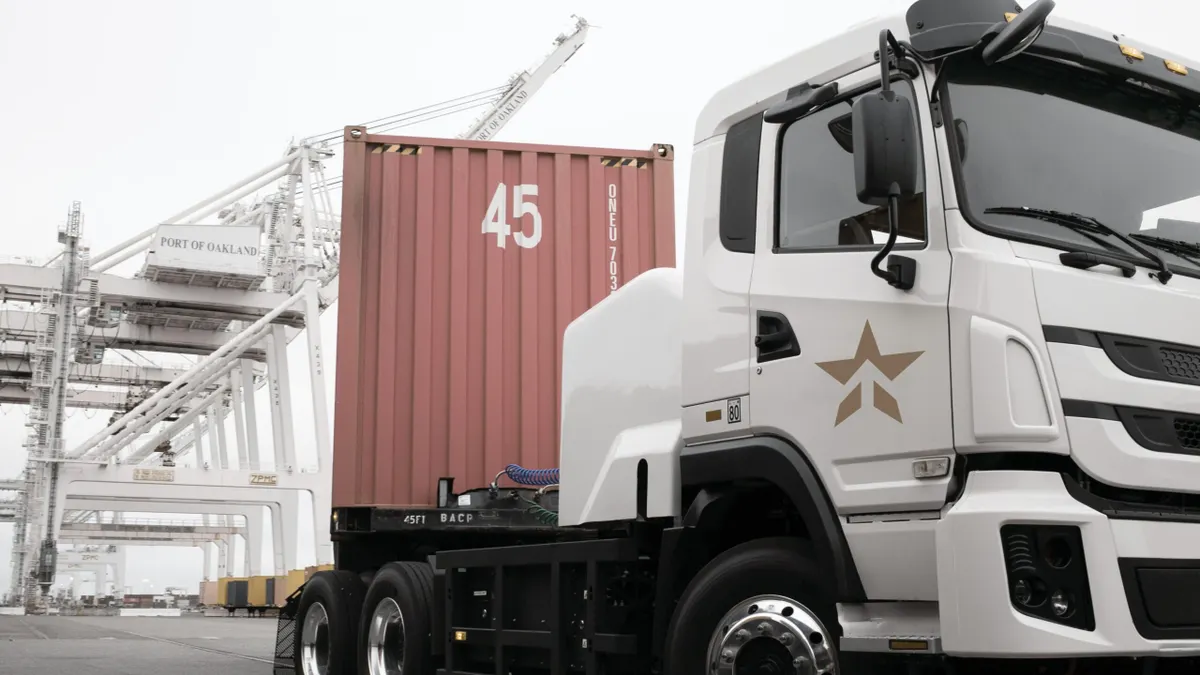Carriers have been sprinting to add capacity in recent years to meet soaring demand, creating more than a few headaches.
Widespread difficulties in driver recruitment and retainment, backlogs of new trucks and trailers and a desire to diversify are among the factors contributing to increased investment in trucking acquisitions, as large carriers look to buy up smaller companies and their assets.
“If you want to grow, the strategic way to do that is to go acquire other companies,” said Heartland Express CFO Chris Strain.
Carriers’ market valuations have grown 30%-50% in recent years thanks to a hot freight market, while larger fleets have added tech upgrades that smaller ones often cannot afford, said Gaurang Shastri, managing director of M&A for Lincoln International’s North America logistics business.
“There are a fair amount of synergies that come from acquiring a smaller fleet that may not have deployed technology or have the same level of systems as some of the larger players that are out there,” Shastri said.
The right price is often just one of several motivations for smaller firms to sell, he added.
“If you are an operator and don't have a ton of succession planning, where there's someone else in your family that wants to take over the business … the last couple years have been a great time to consider selling,” Shastri said.
"There are a fair amount of synergies that come from acquiring a smaller fleet that may not have deployed technology or have the same level of systems as some of the larger players that are out there."

Gaurang Shastri
Managing Director of M&A for Lincoln International’s North America logistics business
In a challenging labor market nationwide, Heartland’s $170 million purchase of Smith Transport in June was primarily motivated by Smith’s Northeast-based roster of drivers, Strain said.
“The Northeast part of the country is probably the hardest area within the country to hire drivers,” he said. “So an opportunity to acquire a company that had some size to it in the Northeast — that predominantly runs a lot of miles east of the Mississippi in that Mid-Atlantic, Northeast region — was very attractive to us.”
P.A.M. Transportation Services used similar logic when acquiring Metropolitan Trucking last month for $77.4 million. Retiring Metropolitan CEO Joe Mangino said in a statement that the smaller carrier’s employees in Pennsylvania, New Jersey and Illinois would become “the Northeast regional face” for P.A.M., though Metropolitan will continuing operating as an independent business.
With new equipment purchases expected to be expensive — and likely inadequate, given manufacturer backlogs — firms are using M&A to bolster their fleets.
Schneider prioritized trucks and trailers over real estate in its recent purchase of paper carrier deBoer Transportation. The deal excluded deBoer’s Wisconsin office and Dallas maintenance shop, instead adding deBoer’s 160 tractors and 660 trailers to Schneider’s power-only service.
Schneider also acquired Ohio-based TL carrier Midwest Logistics Systems for $263 million at the end of last year, putting it on track for $1 billion in annual revenue in its dedicated operations with more than 5,000 trucks, Schneider CEO Mark Rourke said in the announcement.
OEMs are also forging equipment deals to bolster their abilities. Two of the largest OEMs merged when Cummins bought Meritor for $3.7 billion in February. The deal, a sign of increasing demand for zero-emission trucks, will “accelerate the growth in Meritor’s core axle and brake businesses,” Tom Linebarger, Cummins CEO and chairman, said in the announcement.
M&A can offer inroads to new markets
A company’s footprint also plays a role in acquisition decision-making.
DB Schenker considered USA Truck’s 2,100 employees and 1,900 trucks when it purchased the carrier, which it announced in June. But the Germany-based logistics company also noted USA Truck’s “strategic network of terminals across the Eastern half of the United States.”
Hopes of broader market reach prompted EPES Logistics Services to acquire freight brokerage A Cooper Logistics in May. The Greensboro, North Carolina, company added its fifth office with the acquisition of the Oakwood, Georgia-based business.
The A Cooper Logistics deal is designed to grow EPES’ TL and LTL shipment capabilities in the U.S. and Canada. EPES primarily offers TL, LTL, cross-border shipping to and from Mexico.
Saia Executive Vice President and CFO Doug Col told investors in May that “dark clouds on the horizon” could carry a silver lining for large, well-positioned carriers like his: M&A opportunity.
“We’re in a really fortunate position whichever way the things go from here, I think you’d see us be in a position to take advantage of it,” Col said.
Smaller operators, in particular, might find themselves squeezed by 30%-40% declines in spot rates, especially after any large investments in capacity, Shastri said. It could lead some to sell at lower valuations than they may have been able to command over the past few years, he said.
Despite the prime opportunities, buyers face risks as well. Larger companies that acquire smaller ones whose recent growth has mostly come from sky-high spot rates could face deteriorating earnings as the spot market levels out, Shastri said.
“I think we’ll continue to see more M&A,” he said. “But it may just be at lower value than what we’ve seen over the last 24 months.”








